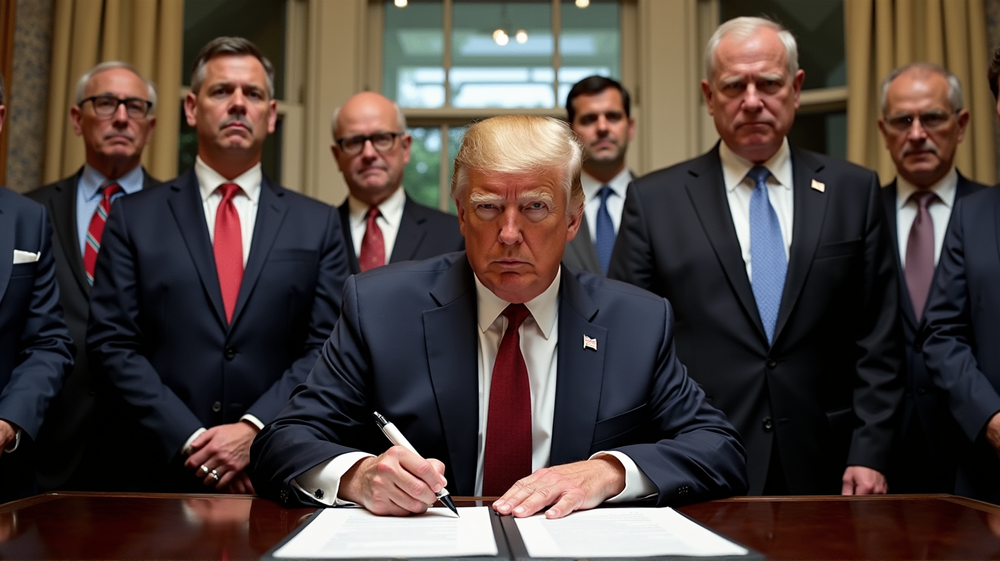In a move that has sent shockwaves through the nuclear industry, President Trump has taken the drastic step of dismissing Christopher T. Hanson from the Nuclear Regulatory Commission (NRC). This decision has ignited a heated debate over the future of nuclear safety and regulatory independence in the context of the Trump administration’s policies.
A Sudden and Unexpected Termination
The termination of Hanson came without warning, as detailed in a brief email announcement from Trent Morse, the White House Deputy Director of Presidential Personnel. Hanson’s role as Commissioner was abruptly ended, fueling speculation about the motivations behind this unexpected decision.
“All organizations are more effective when leaders are rowing in the same direction,” explained Anna Kelly, the White House Deputy Press Secretary, emphasizing President Trump’s right to shape his Executive Branch.
NRC’s Response and Concerns Over the Future
While the NRC has assured the public that it can continue its work without Hanson, his dismissal raises questions about the agency’s stability. “The NRC has functioned in the past with fewer than five commissioners and will continue to do so,” stated the agency.
Hanson himself expressed concerns, stating that his termination was “without cause” and that he remains confident in the NRC’s dedication to public health and safety. His words highlight the potential impact of this change on the commission’s independence and integrity.
Criticism from Industry Observers
Industry experts, such as Edwin Lyman from the Union of Concerned Scientists, have warned of the possible ramifications of President Trump’s interference. “This coupled with other attacks on the independence of the NRC could have serious implications for nuclear safety,” Lyman claimed, stressing the importance of unbiased judgment in protecting public health.
Historical Context and Recent Developments
The NRC has long been an independent agency, established in 1974 with the mission to regulate nuclear reactors and safeguard the American public. Traditionally, the agency has been free from political influence, contributing to its strong safety record since the notable Three Mile Island incident.
Last month, Trump signed an executive order calling for major reforms within the NRC. This order advocates for a complete revision of safety regulations and a reduction in agency personnel, seen by some as a potential threat to regulatory oversight.
Industry Implications and What Lies Ahead
The president’s recent order, signed amidst nuclear industry magnates, further positions his administration’s ambitions. Flanked by figures eager for regulatory leniency, Trump underscores his support for increasing the nation’s nuclear capabilities.
Observers will continue to watch closely as the NRC adapts to these changes, contemplating the potential long-term effects on the nuclear industry’s relationship with the government. According to WSKG, these developments could reshape the industry landscape and redefine regulatory norms.
As the story unfolds, the true impact of Christopher Hanson’s departure and the administration’s influence over the NRC remains to be seen, leaving industry watchers on edge and awaiting further developments.












